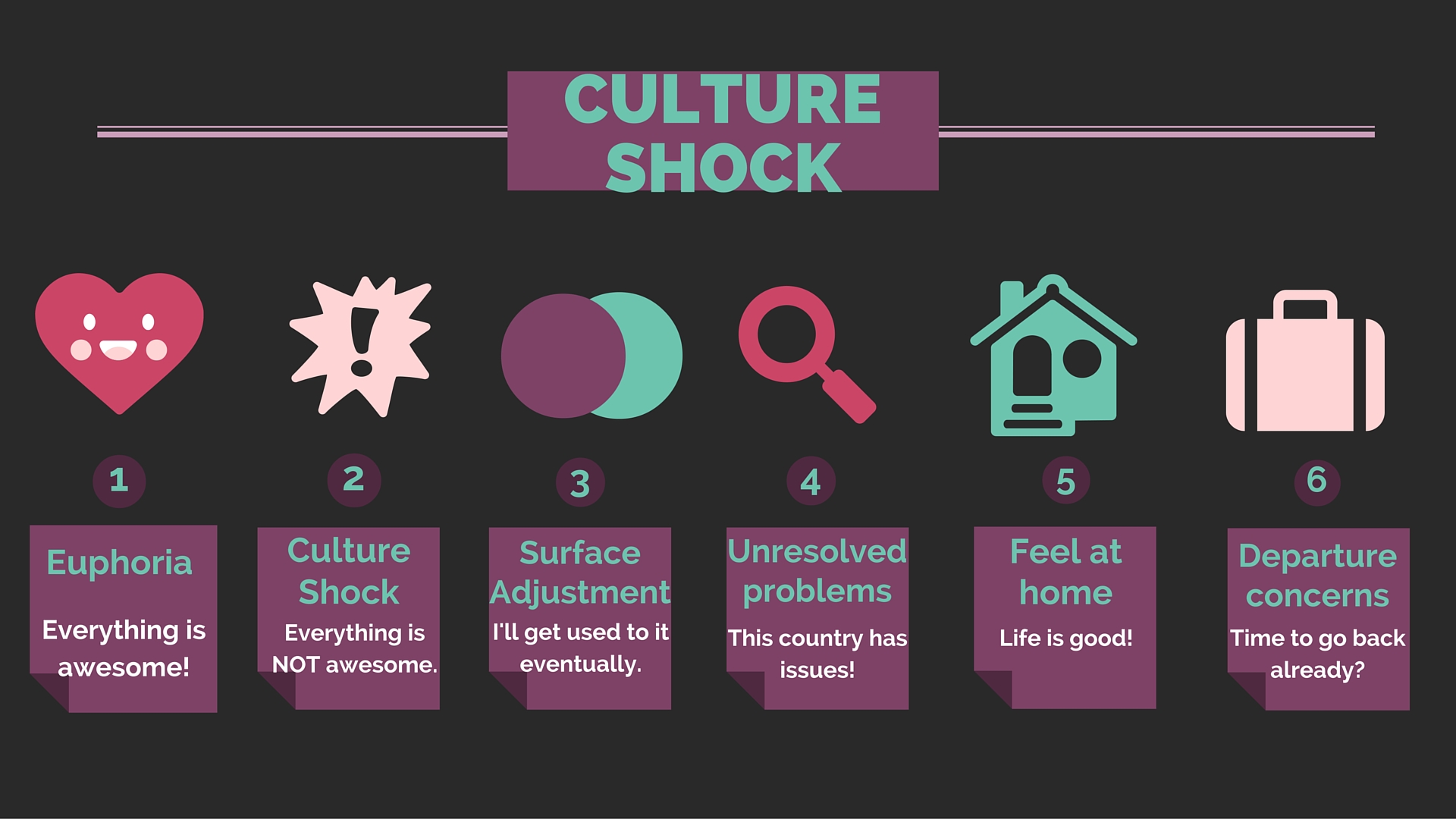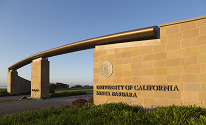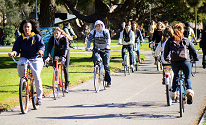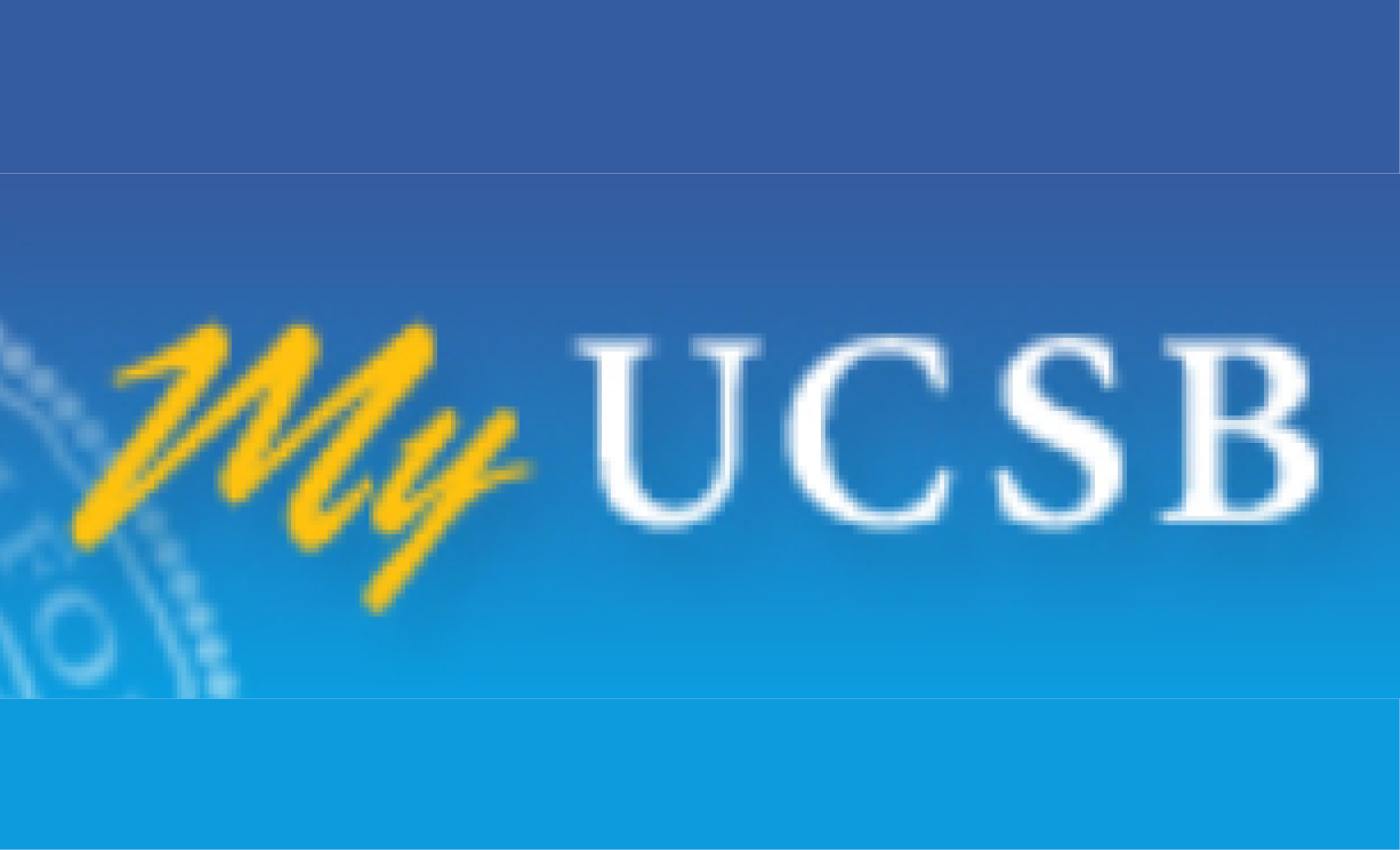|
|
|
|
Most of your questions will be answered in the following links:
| Academics | Finances | Insurance/Immunizations/Health |
| Student Services / Housing Questions | Student Visa-related Questions | Additional Information |
|
Welcome to UCSB! - UCEAP Reciprocal Exchange |
Studying Abroad as an Exchange Student |
| Helpful Resources for Newly Arrived Exchange Students |
To receive the quickest response, contact the offices below with your questions.
Academic Questions
COURSE ENROLLMENT QUESTIONS
(Need more courses?, can't get into a course, questions about registering, waitlists, etc.)
- College of Letters & Science
Advising Appointment
Located in Cheadle Hall 1117 (map)
- College of Engineering Advising
-UCEAP Course Enrollment Tab
-Prerequisite Clearance Request form
-Advising info for specific majors
-Registration Calendar: deadlines to add/drop, change grading option
AND Refer to Course & Registration/Crashing Courses section of the Welcome Email
HOW TO NAVIGATE GOLD (video)
(Link to GOLD : UCSB portal where you will register for your classes.)
HOW TO USE CANVAS (video)
ENGLISH for Multilingual Students(EMS) website
Finance Questions
BARC BILLING
(This is where you pay your UCSB bills.)
Website
Email: barc.info@bfs.ucsb.edu
Location: Student Affairs & Administrative Services Building (map)
Insurance / Immunizations/Health
IMMUNIZATION QUESTIONS
Email: studenthealth@sa.ucsb.edu
UCSHIP HEALTH INSURANCE WAIVER
Insurance website
Email: shswaivers@sa.ucsb.edu
Additional detailed information: UCEAP Health Insurance & Requirements Tab
Student Services / Housing Questions
ACCESS CARD (student I.D.)
Located at the Info Desk, 1st floor of the University Center (UCen) (map)
Order instructions here
HOUSING QUESTIONS
Living off- campus: UCSB Community Housing Office
Living on-campus: UCSB Campus Housing
MyUCSB Start Page (One link access to UCSB email, GOLD, BARC,
MTD Public Bus Schedules
Access here
INTERACITVE CAMPUS MAP
Click here
Student Visa-related Questions
U.S. IMMIGRATION/VISA-RELATED QUESTIONS
(Office of International Students and Scholars : DS-2019 questions, UCSB Global Portal,etc.)
Email: oiss@sa.ucsb.edu
Location: Student Resource Building, Room 3130 (map)
- Drop-in advising available for quick general questions:
- More in-depth questions, advisors assigned by student's last name. Contact the appropriate person:
| Last Name | OISS Advisor | Schedule an Appointment | |
| D | Ashley Rifkin | ashleyrifkin@ucsb.edu | Appointment Link |
| J, Y | Cristina Carney | cristinacarney@ucsb.edu | Appointment Link |
| B, L, M, P, S | Jeremiah Cortes | jeremiahcortes@ucsb.edu | Appointment Link |
| A, E, H, K, N, O, Q, R, U, V, W, Z | Rosa Lopez Nakashima | rlopeznakashima@ucsb.edu | Appointment Link |
| C, F, G, I, T, X | Sarah Lin | sarah.lin@sa.ucsb.edu | Appointment Link |
Click Here to check out the OISS Staff Directory
Additional Info
Refer to UCEAP Portal
| Arrival |
Before you arrive at UCSB
The Reciprocity Team at the UCEAP Systemwide Office is your first point of contact (not the UCSB EAP Office). They will email you important information and instructions as soon as the information is available and it is time to take action. If you have any questions between the time you are accepted and the time you arrive at UCSB, please contact them at uc-reciprocity@uceap.universityofcalifornia.edu.
If you have questions about your immigration documents (visa, DS-2019, etc.), please visit the UCSB Office of International Students and Scholars (OISS) Newly Admitted Students webpage. Most questions will be answered there, but if not, please contact OISS. Please allow 5 business days for a response.
After you arrive at UCSB
Aubree Orzechowski is the Reciprocal Exchange Coordinator at UCSB EAP and is available to help after you arrive. The UCSB EAP Office is located in 2201 Student Affairs/ Administrative Services Buidling (SAASB), second floor closest to Coral Tree Cafe. Here is a campus map.
UCSB EAP Peer Advisors
When your exchange begins, talk with our Peer Advisors about UCSB-related matters such as student life, campus involvement, BARC fees, and academic processes. Peer Advisors are all UCSB students who have studied abroad and will be excited to meet you!
- Peer Advisors Hours: Mondays-Thursdays 9:30am-4pm and Fridays 10am-2pm in the EAP Office in SAASB 2201
Office of International Students and Scholars (OISS)
Contact OISS with any questions about your DS-2019, visa, work or Academic Training authorization, travel signature, or other immigration-related matters.
- Student Resource Building room 3130 (not the UCSB EAP Office)
- Website: UCSB Office of International Students & Scholars (OISS)
- Email: oiss@sa.ucsb.edu
- Phone: +1-805-893-2929
- Want to talk to an OISS advisor? Check for more information here.
Helpful Resources (Click here)
- For links to commonly used student pages like GOLD, BARC, Student Handbook, and more: MyUCSB Start Page
- UCSBGlobal: Submit documents like On-Campus Employment Requests, DS-2019 Travel Signature Requests, Personal Information Updates (e.g. emergency contact, local address, permanent foreign address), and Pre- and Post-Completion Academic Training Forms
- Things to do at UCSB, in Santa Barbara/Goleta, and California: Reciprocity Bucket List
| Cultural Adjustment |

Culture shock is normal, and is something you may experience during your time here at UCSB. You will to some extent see yourself living this "roller coaster" no matter how well prepared you think you are and no matter how long your stay.
Phase 1: Euphoria – You are excited about the newness of your environment and initial discoveries of your host country.
Phase 2: Culture Shock – You begin to realize all of the cultural differences between home and your host country and you may not be happy with these differences. Homesickness is common during this phase.
Phase 3: Surface Adjustment – You begin to accept your culture shock and start getting into an everyday routine. You have made friends, are learning how to study under a different system, and your language skills are rapidly improving.
Phase 4: Unresolved Problems – Your surface adjustment is unfortunately just that – on the surface. Once you have settled into your daily routine, you begin to feel the tension of unresolved problems that may or may not relate to cultural differences. You may begin to have issues with individual people or may continue to have concerns with specific aspects of your host country.
Phase 5: Feel at Home – Once you have completely adjusted – not just on the surface, but also emotionally, socially, academically, and physically, you will finally begin to feel at home. You will feel part of the community in your host country, will be missing things from home much less, and will be calling home with daily tales of exciting adventures rather than daily tales of cultural annoyances.
Phase 6: Departure Concerns – Unfortunately, all good things must come to an end, and once you begin to feel at home in your country, you will soon realize that your time abroad is fleeting. Whether or not you are really enjoying yourself, you may feel concerned about your final departure from your host country. You may be worried about the long journey home, about the reverse culture shock you may experience once you have returned home, and about saying goodbye to the people and places you’ve grown to love.
Strategies for a successful experience here at UCSB:
Meet others:
- Introduce yourself to the UCSB students in your classes, housing and activities
- Eat meals with other students
- Join a study group
- Volunteer to work on group projects
Get involved:
- Join clubs (Shoreline), sports teams, social groups
- Participate in UCSB EAP events - many include students who have studied abroad
- Get a part-time job, participate in an internship or apply for academic training after your first term
Ask for help:
- Talk to the Reciprocal Exchange Coordinator or UCSB staff/advisors on how to get involved
- Don't be afraid to speak to the Reciprocal Exchange Coordinator if you're having a challenging time adjusting
- Speak to a psychologist at Counseling & Psychological Services (CAPS). Services offered in English, Spanish, Mandarin and other languages.
| Helpful Links |
UCSB-specific Resources
Health and Safety Emergency Services
UCSB Campus Emergency services
Counseling Services
Frequently Used Campus Resources
Office of International Students and Scholars (OISS)
UCSB Campus Housing and Community Housing Services
Campus Events, Activities, Clubs, Sports, etc.
UCSB Arts and Lectures
Clubs and organizations
Daily Nexus
UCSB Recreation
Multicultural Center
Events at the Hub
Excursion Club
Associated Students Ticket Office - sells tickets for campus events & discounted theme park tickets
Part-time On-campus Employment Resources:
Career Services
Handshake
OISS
Resources for the Isla Vista, Goleta and Santa Barbara Areas
Associated Students Pardall Center
Public Transportation Maps (buses commonly used from UCSB)
Bus 27 - Isla Vista and Camino Real Marketplace
Bus 6 and Bus 11 - Goleta Amtrak, Santa Barbara Airport, Camino Real Marketplace, and Downtown Santa Barbara (more stops)
Bus 24X - Downtown Santa Barbara
Bus 28 - UCSB and Camino Real Marketplace
*Routes may change without notice. For the most up-to-date information on public transportation, visit the Metropolitan Transit District website
Santa Barbara Airbus
Amtrak Train
Flixbus - Santa Barbara
Tourist information and things to do
Isla Vista History
Santa Barbara Tourist Information
Santa Barbara Independent
| FAQs |
Is there any way that I can get in contact with other reciprocity students who are going to UCSB?
Yes. You can ask to join the UCSB EAP Reciprocal Exchange Facebook Group, where you can connect with other UCEAP reciprocity students.
I have questions regarding my visa and my DS-2019 form. Who should I ask?
The Office of International Students and Scholars (OISS). Your question may likely be answered by their FAQs, but if not, call them at 1-805-893-2929 or email them at oiss@sa.ucsb.edu. Most UCEAP students are J-1 visa holders (unless you have a U.S. passport).
How can I get a Social Security Number (SSN) if I need one? Why might I need one?
If you wish to receive a Social Security Number (SSN), you should update your local address on GOLD and wait 10 days after your arrival date in the United States before visiting the Social Security Administration Office in Santa Barbara. A student will need a SSN for employment.
I want to drive while in California. What are the requirements for this?
All students who plan to drive during their term abroad need to obtain a California driver’s license. For more information on how to obtain a CA driver’s license, refer to the California Department of Motor Vehicles website.
Drivers must have valid car insurance coverage, which can be expensive. Carefully consider and research the cost of driving before making any plans. Keep in mind that all UCSB students are able to ride the local buses for free during the academic year with their Access card.
The Office of International Students and Scholars (OISS) also has a great resource on obtaining a license on their website.
Where can I find more information about on-campus jobs and internships?
The best places to find information about on-campus jobs and internships related to your field of study are Career Services and your academic department at UCSB. To maintain J-1 visa status, you must be employed on campus or find internships related to the field of study on your DS-2019 form. You must also obtain permission from the Office of International Students and Scholars (OISS) before starting employment or an internship. If you are interested in these opportunities, consult the UCSB EAP Reciprocal Exchange Coordinator early!
How do I open a U.S. bank account?
At the required Cultural Awareness Laws and Immigration (CALI) Training, which will serve as your orientation, you will be provided with information on how to open up a U.S. bank account, including a map of where to find the banks, automated teller machines (ATMs), etc. If you have an ATM card with a 4-digit pin, you should be able to withdraw money from any ATM in the U.S., but there is often a fee to do so. Please check with your home bank to ensure ATM access in the U.S.
I heard that the alcohol policy in the U.S. is very strict and I may be required to show an I.D. card if I try to purchase alcohol. Is this true?
YES! The alcohol policy in the United States is enforced more stringently than in your home country. All students are expected to follow state regulations regarding drinking (meaning no alcohol for students under 21 years of age). Even students who are 21 and older need to be aware of the policies regarding alcohol (see below). Please discuss these policies with your Reciprocal Exchange Coordinator or other staff members if you have any questions.
In addition to a legal drinking age of 21, the United States has certain other alcohol-related restrictions:
- To purchase any alcoholic beverage in a bar or supermarket, students must show an identification card (I.D.) or a passport with their photo and date of birth as proof that they are 21 or older.
- Many nightclubs will not admit people under 21, so you must provide your I.D. to gain admittance, regardless of whether you intend to purchase alcohol or not.
- It is illegal to carry an “open container” (an open can, bottle, cup or glass of any alcoholic beverage: beer, wine, spirits, etc.) on the streets, parks, and beaches of Santa Barbara, Goleta, or Isla Vista. Violation of these policies may lead to fines and/or imprisonment.
- Police are also very strict with students bicycling while intoxicated and the offense is treated as seriously as if someone were driving a car while intoxicated.
UCSB is now requiring all new students to complete an online tutorial related to alcohol and underage drinking. The tutorial can be found here.





 Arrival
Arrival Cultural Adjustment
Cultural Adjustment Helpful Links
Helpful Links FAQs
FAQs